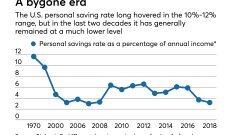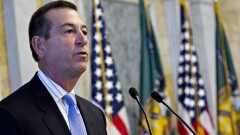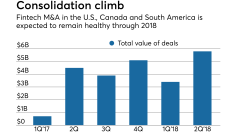Consumers are back to their old spending and saving habits; Trump administration is encouraging financial innovation; some fintech firms could soon be regulated more like banks; and more from this week's most-read stories.
Consumer debt is at an all-time high. Should banks be worried?

(Full story
6 takeaways from Treasury fintech report: National charter, breaches and more

(Full story
The crisis isn't over

(Full story
After years of debate, OCC to offer fintech charter

(Full story
Where GSE reform went wrong

(Full story
Go Midwest, young fintechs

(Full story
Inside USAA’s redesign of its digital offerings

(Full story
Fintech vendors keep reinventing themselves – and banks are struggling to keep up

(Full story
Synchrony at strategic crossroads after losing Walmart deal

(Full story
The weak spot in banks' cyberinsurance

(Full story





